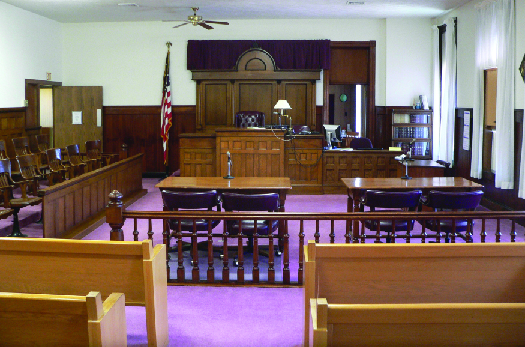| << Chapter < Page | Chapter >> Page > |
The National Association for Public Defense represents public defenders, lobbying for better funding for public defense and improvements in the justice system in general.
Typically a person charged with a serious crime will have a brief hearing before a judge to be informed of the charges against him or her, to be made aware of the right to counsel, and to enter a plea. Other hearings may be held to decide on the admissibility of evidence seized or otherwise obtained by prosecutors.
If the two sides cannot agree on a plea bargain during this period, the next stage is the selection of a jury. A pool of potential jurors is summoned to the court and screened for impartiality, with the goal of seating twelve (in most states) and one or two alternates. All hear the evidence in the trial; unless an alternate must serve, the original twelve decide whether the evidence overwhelmingly points toward guilt or innocence beyond a reasonable doubt.
In the trial itself, the lawyers for the prosecution and defense make opening arguments, followed by testimony by witnesses for the prosecution (and any cross-examination), and then testimony by witnesses for the defense, including the defendant if he or she chooses. Additional prosecution witnesses may be called to rebut testimony by the defense. Finally, both sides make closing arguments. The judge then issues instructions to the jury, including an admonition not to discuss the case with anyone outside the jury room. The jury members leave the courtroom to enter the jury room and begin their deliberations ( [link] ).

The jurors pick a foreman or forewoman to coordinate their deliberations. They may ask to review evidence or to hear transcripts of testimony. They deliberate in secret and their decision must be unanimous; if they are unable to agree on a verdict after extensive deliberation, a mistrial may be declared, which in effect requires the prosecution to try the case all over again.
A defendant found not guilty of all charges will be immediately released unless other charges are pending (e.g., the defendant is wanted for a crime in another jurisdiction). If the defendant is found guilty of one or more offenses, the judge will choose an appropriate sentence based on the law and the circumstances; in the federal system, this sentence will typically be based on guidelines that assign point values to various offenses and facts in the case. If the prosecution is pursuing the death penalty, the jury will decide whether the defendant should be subject to capital punishment or life imprisonment.
The reality of court procedure is much less dramatic and exciting than what is typically portrayed in television shows and movies. Nonetheless, most Americans will participate in the legal system at least once in their lives as a witness, juror, or defendant.
Have you or any member of your family served on a jury? If so, was the experience a positive one? Did the trial proceed as expected? If you haven’t served on a jury, is it something you look forward to? Why or why not?

Notification Switch
Would you like to follow the 'American government' conversation and receive update notifications?